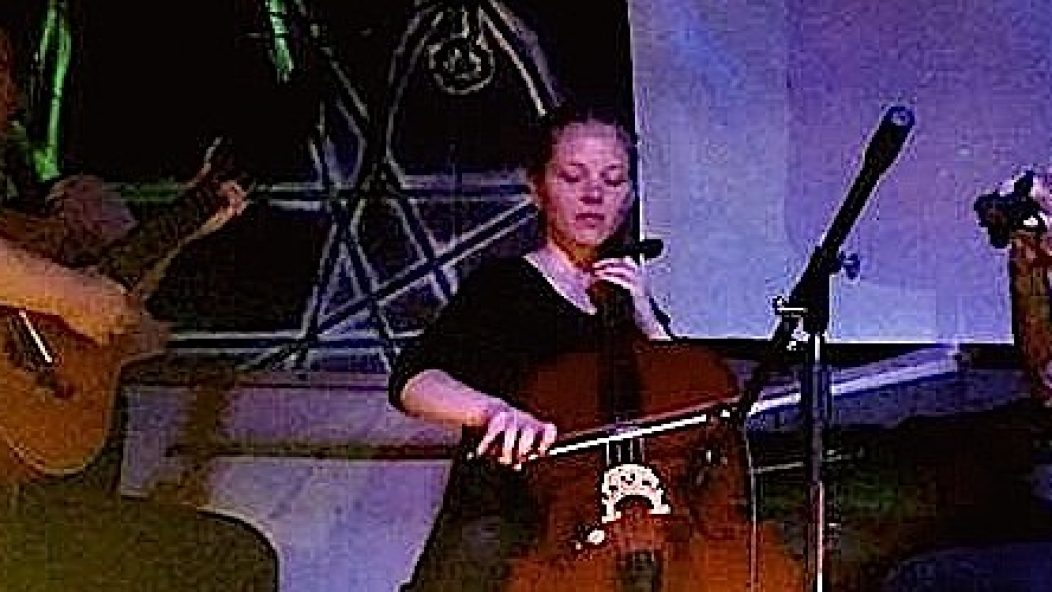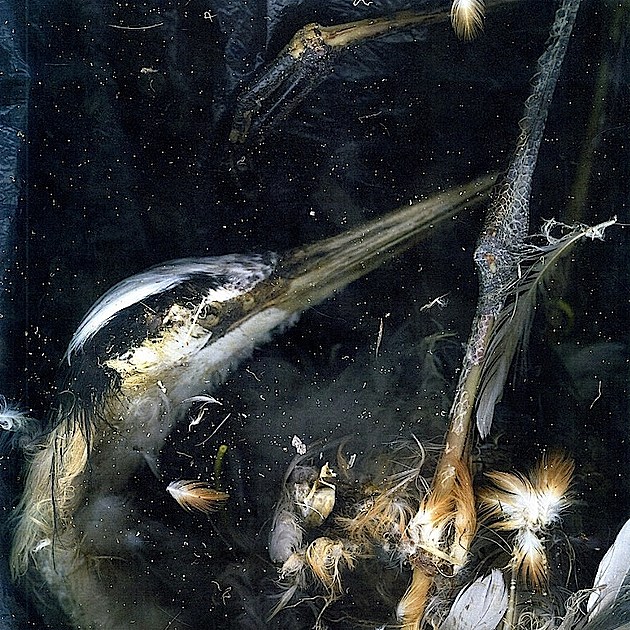
Disemballerina - Undertaker

…
Disemballerina are a chamber music collective from Portland, Oregon. Their new album, Undertaker, has been tagged many ways, with ‘chamber doom’ leading as the catchiest iteration. Despite ingrained doubts triggered by the name, these categorizations aren’t PR bluster and aren’t inaccurate: Disemballerina’s collaborators do connect classical and metal. Guitarist (and player of guitar-esque instruments) Ayla Holland’s strumming patterns occasionally evoke trad touchstones. The other constants of Disemballerina’s fluid membership, multi-instrumentalist Myles Holland along with Marit Schmidt’s viola and Jennifer Christensen’s cello, familiarly blur together when given progressions perhaps pulled from black metal. But tags like ‘chamber doom,’ and even descriptors such as ‘rustic’ or ‘folksy,’ feel false and fail to really capture what pumps Disemballerina’s heart. It’s not until you surf their Bandcamp and click the info link on opener “Sundowning” that you’re able to fill in the underlying blank:
The breathing on this was the death rattle of a friend of mine recorded into a cellphone the last night she was alive. At the time this song was coalescing, I was working graveyard shift doing hospice care as a nurse assistant. “Sundowning” is a form of dementia unique to Alzheimer’s sufferers during the later hours of the night. I saw a lot of it on the job. This song is dedicated to all the elderly people I’ve cared for over the years who have passed on from this world. I’m tremendously lucky to have known all of you. -Myles
Ah.
In nearly any other song, hearing the last gasps of a fellow human, a real person, would be hard to stomach. It’d be cheap and unearned, almost offensive. But Disemballerina handle death with such care. There’s nothing maudlin or mawkish about “Sundowning.” Myles and Marit’s violas and Christensen’s cello don’t quiver with soap opera woe. Ayla’s downtuned acoustic guitar doesn’t hollowly pluck heartstrings. No, “Sundowning” is as truthful as an open wound. It doesn’t try to teach you something about death, it just wants the capture the effect it has on those left behind. Death is already sad, lonely, and terrifying; it doesn’t need to be punched up. There’s a reason we create diversions to stop thinking about the inevitable, though we never really escape the memories of flatlines and final breaths that accrue over time. “Sundowning” is Disemballerina’s memories, their experiences. They bare their true, unfiltered selves, turning a subject of such sorrow into something comforting. You can wrap yourself up in “Sundowning,” knowing that crushing feelings such as these aren’t yours alone to shoulder.
From a less grim, less philosophical angle, Disemballerina get a lot of Undertaker to work thanks to their canniness. (Sonically, the wide spread from Tad Doyle’s mix/master doesn’t hurt either.) They have a good, smart feel for this material: they let sounds crash together and linger like Brian Eno tone clusters (“Siren on the Rocks”); they take into account how ring-outs affect overtones (the bandola vs. mandola court music of “Two Crows”); and they can lay conterpunctual layers without overcrowding the playing (the blackened, quietly epic “Carpathia”). However, it feels like they’re more concerned with capturing the right hues — the autumnal melancholic ache of Bee and Flower, the blood-red reverence of folk metal, the still-water-blue of doom — than showing off sharpened skills. Sometimes that can backfire, producing sections where momentum slows to a crawl, bucking you out of your zone. Other instances have a one-take sort of roughness that could’ve been smoothed out. Undertaker is a touch long, a tad fat. But Disemballerina, first and foremost, are about naked honesty. And what’s honest is sometimes long and messy while helping you cope with things that hurt the most.
…
…











